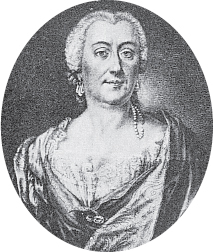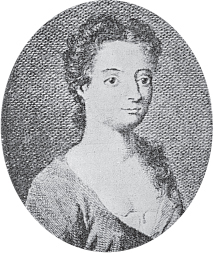Women in Music

Before the twentieth century, opportunities for women were limited. Though some women worked as teachers, nurses, and laborers, society viewed women’s primary role as that of wife and mother. Occasionally accidents of royal succession placed a woman in a position of great power, and the eighteenth century saw two amazingly long-
Music provided one of those exceptions. It did so by way of the theater, because an opera singer, like an actress or a ballet dancer, could attain fame and fortune and the opportunity to develop her talents in the same way as men in those same fields. Indeed, opera depended on female singers; without them the genre could never have developed or survived.
The names — although not, alas, the voices — of opera’s legendary prima donnas have come down to us, along with those of opera’s great composers: from Anna Renzi (c. 1620 – c. 1660), who sang in Monteverdi’s Poppea (see page 86), to the notorious rival sopranos Faustina Bordoni (1700–

Women of the theater paid a price for their career opportunities, of course. They were displaying themselves — their legs or their voices — for the enjoyment of, mainly, men, who paid for the privilege. There was always a question about the respectability and marriageability of opera singers.
While female opera singers were a fixture in the musical workplace of the Baroque, female instrumentalists were much rarer. Women composers were simply flukes. Remember that composers, such as Bach and Handel (and Farinelli — see page 137), were also always performers; a notable harpsichordist-
There was no respectability problem with Jacquet; by the time she was seventeen she was married to an organist, one Marin de la Guerre, whose name is usually hyphenated with hers.